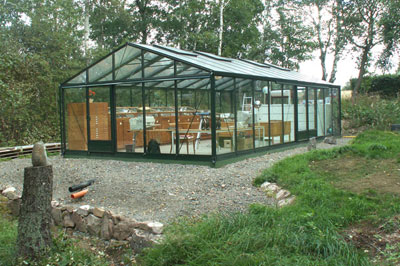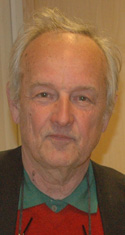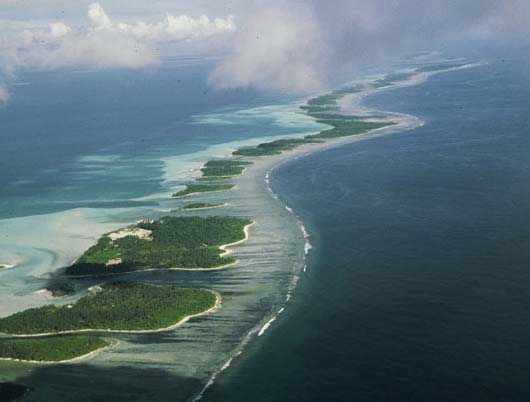SWEDISH SOUTH ASIAN STUDIES NETWORK
Unit of Palegeophysics and Geodynamics, Stockholm University:
The unit was closed down in April 2005 after Prof. Nils-Axel Mörner’s retirement
Contact person: Professor Emeritus Nils-Axel Mörner, phone: +46 (0)431 363403, +46 (0)8 7171867
 The Palegeophysics and Geodynamics unit (Enheten för paleogeofysik och geodynamik) at Stockholm University
was basically a research unit, with a few subjects of special attention:
• Sea Level, • Uplift of Fennoscandia, • Climate, •
Paleoseismiy & Neotectonics, • Paleomagnetism, and • Geophilosophy.
It was located at Kräftriket.
The Palegeophysics and Geodynamics unit (Enheten för paleogeofysik och geodynamik) at Stockholm University
was basically a research unit, with a few subjects of special attention:
• Sea Level, • Uplift of Fennoscandia, • Climate, •
Paleoseismiy & Neotectonics, • Paleomagnetism, and • Geophilosophy.
It was located at Kräftriket.
After the closing-down of the unit at Stockholm
University Prof- Emeritus Nils-Axel Mörner has opened an independent
research institution on Palegeophysics and Geodynamics, in Torekov in
South Sweden (see building on photo). It was inaugurated in the summer 2010.
Work goes on as before but now with zero founding.![]()
Web page: http://www.pog.nu
Ongoing research connected to South Asia
 During
the period 1999–2003 Prof. Nils-Axel Mörner was president
for the INQUA (The International Association of
Quaternary Research) Commission on Sea Level Changes and Coastal Evolution,
with a sub-commission (nr 3) devoted to the Indian Ocean. In the Spring
2000 edition of Integrated Coastal Zone Management he published an article
on the Indian Ocean and its special sea level problems. That became the
starting point for a research programme in the Maldives, which gave some
spectacular finds. Information on the Maldives project, and the participating
researchers is found on http://www.pog.nu/02projects/1_maldives.htm.
During
the period 1999–2003 Prof. Nils-Axel Mörner was president
for the INQUA (The International Association of
Quaternary Research) Commission on Sea Level Changes and Coastal Evolution,
with a sub-commission (nr 3) devoted to the Indian Ocean. In the Spring
2000 edition of Integrated Coastal Zone Management he published an article
on the Indian Ocean and its special sea level problems. That became the
starting point for a research programme in the Maldives, which gave some
spectacular finds. Information on the Maldives project, and the participating
researchers is found on http://www.pog.nu/02projects/1_maldives.htm.
The key South Asia researchers in the sub-commission are Shahidul
Islam, from the Department of Geography, University of Rajshahi, Bangladesh;
J. Katupotha, from the Department of Geography, University of Sri
Jayawardenepura, Sri Lanka; and V
J Loveson, Central Mining Research Institute, Dhanbad, India.
Prof Mörner intends to broaden these studies geographically, and
include not only the Maldives, but also Sri Lanka, South India, Bangladesh,
the Andaman Islands and maybe Thailand, and also involve scientists from
many different disciplines from Geology, Geophysics, Biology and Ecology
to Archeology, Osteology, DNA Genetics, History, Linguistics, and History
of Technology and Trade. In June 2004 an article written by Mörner
on ”The Maldives Project: a future free from sea-level flooding”
was published in the prestigeous magazine Contemporary
South Asia.
In 2008, Mörner published a paper in Journal of Coastal Research (together with his colleagues Jacques Laborel and Sue Dawson) on multiple tsunami events in the Maldives as detected by submarine ”sandstormes” (a novel technique) together with coastal records and historical documentation. In late 2008, Prof. Mörner was awarded an award in Portugal, the so-called ”Golden Condrite of Merit” (consisting of a fragment of the 1998 meteor affixed to a silver plaque, for his ”contribution to our understanding of sea-level change”.
The Maldives Sea Level Project continues.
At the Development studies research conference held at Lund
University in January 2003 Nils-Axel Mörner presented his new research
project on ”Freed from condemnation to become
flooded”. Read abstract!
In August 2004 Mörner was awarded a SASNET planning grant for an
educational projct called “Research and Education in the Maldives
regarding sea level changes, island evolution and reef ecology.”
More information.
• In November 2007, papers presented by Prof. Nils-Axel Mörner and colleagues at the 18th European Conference on Modern South Asian Studies (ECMSAS), organised by SASNET in Lund in 2004, were published in the journal Internationales Asienforum (International Quarterly for Asian Studies, Vol. 38, Issue 3-4). A section of the journal was devoted to the theme ”Environment and Ecology in South Asia: Past and Present”, with Michael Mann, Fern Universität in Hagen, Germany, being the guest editor. Michael Mann and Nils-Axel Mörner, Professor Emeritus in Palegeophysics and Geodynamics from Stockholm University, were co-convening a panel at the Lund conference titled ”The stress on culture and ecology by past and present changes in environment” (more information about the panel).
Four papers from the panel are now published, Prof. Mörner’s
”Sea Level Changes and Tsunamis, Environmental Stress and Migration Overseas. The Case of the Maldives and Sri Lanka” – read the full paper; Iftekhar Iqbal’s ”The Railways and the Water Regime of the Eastern Bengal Delta, c1845–1943” – read the full paper; Bernardo A. Michael’s ”Land, Labour, Local Power and the Constitution of Agrarian Territories on the Anglo-Gorkha Frontier, 1700–1815”; and Golam Mahabub Sarwar’s ”Sea Level Rise. A Threat to the Coast of Bangladesh”. More information.
 Internationally, the Republic of Maldives has
in recent years mostly appeared in the news while discussing the
effects of climate change. Ex-president Gayoom has made several
appeals to the world for assistance because of the presumed threat
of a coming total flooding of the islands, and even asked for resettlement
of the entire Maldivian population to other countries such as Australia.
As late as in early February 2009, he participated in the 9th annual
Delhi Sustainable Development Summit (organised by The Energy and
Resources Institute, TERI) and made an emotional speech on the
issue.
The new president
Mohamed Nasheed has also engaged himself strongly in the issue.
Internationally, the Republic of Maldives has
in recent years mostly appeared in the news while discussing the
effects of climate change. Ex-president Gayoom has made several
appeals to the world for assistance because of the presumed threat
of a coming total flooding of the islands, and even asked for resettlement
of the entire Maldivian population to other countries such as Australia.
As late as in early February 2009, he participated in the 9th annual
Delhi Sustainable Development Summit (organised by The Energy and
Resources Institute, TERI) and made an emotional speech on the
issue.
The new president
Mohamed Nasheed has also engaged himself strongly in the issue.
Prof. Mörner has however strongly contested the theory
of an imminent threat of total flooding of the Maldives, claiming that the Indian Ocean is characterised
by special features of sea level changes. Based on the 1999–2003 INQUA research programme
and its spectacular finds, showing that absolutely no sea level
rise has taken place in Maldives during recent years (whereas at the
same time the sea level in Maldives has shifted
considerably over time – during the 14th Century A.D. it
was for example one metre higher than today without causing any
catastrophy), he has tried to inform the world about this without much success.
The Maldivian government has neither reacted positively
to these findings since they goes against the official policy.
Read Prof. Mörner’s 2009 open letter to President Nasheed. ![]()
On Wednesday 8 December 2009, Prof. Mörner participated in the Copenhagen Climate Challenge Conference (held in Copenhagen 8–9 December 2009). During the fall 2009, he conducted a similar study of sea level changes in Bangladesh, and came up with equally surprising results – that no sea level change is taking place at all along the Bangladeshi coast. The conference, organised by the organisation Climate-Sense, coincided with the official UN Climate Change Conference (COP15) that was held in Copenhagen from 7-18 December 2009. More information.
Read Prof. Mörner’s Report on Bangladesh, written as an article entitled ”Sea level Changes in Bangladesh. New Observational Facts”, and published by the journal Energy & Environment, Volume21 No. 3 (2010). ![]()
SASNET - Swedish South Asian Studies Network/Lund
University
Address: Scheelevägen 15 D, SE-223 70 Lund, Sweden
Phone: +46 46 222 73 40
Webmaster: Lars Eklund
Last updated
2010-11-03
